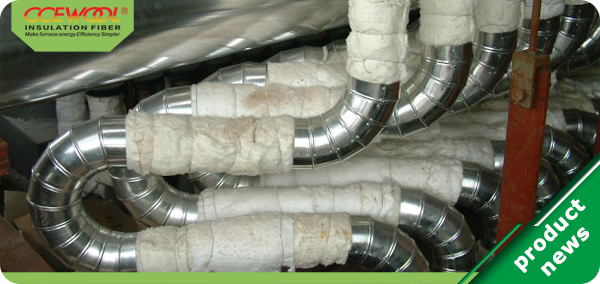The so-called "antifreezing" is to make the water-bearing refractory material above the freezing point of water (0 ℃), and will not cause failure due to internal stress caused by water freezing. The temperature is required to be>0 ℃, without defining a fixed temperature range.
In short, the insulation process of industrial furnace is the process of "open source and throttling". The so-called "open source" refers to providing a constant and stable heat source for the heating furnace; The so-called "throttling" refers to reducing the loss of heat energy. During the construction of large furnaces and kilns, due to the huge furnace body and long construction period, when the temperature is lower than 0 ℃, necessary thermal insulation must be carried out for the furnace body to ensure that the water bearing refractory material will not be damaged due to water icing and expansion.
The thermal insulation of furnace body is similar to that of oven drying. For oven drying, it is completed by oven drying equipment in most cases. The temperature change of refractory material is controlled by controlling the amount and temperature of heat input into the furnace body, and it is carried out according to a certain curve. The oven equipment needs to consume chemical fuel, and gas, diesel and other fuels are preferred. Its advantages are easy to operate, stable working conditions, safe and reliable; There are also those that consume electric energy for heating, but the cost is high and there are safety risks. For simple kilns that doesn’t need accurate temperature control, wood, coke and gas can also be used. This method is simple in operation and low in cost.
Next issue we will continue to introduce common antifreezing and thermal insulation measures for industrial furnace refractory construction in winter.
Post time: Feb-21-2023


